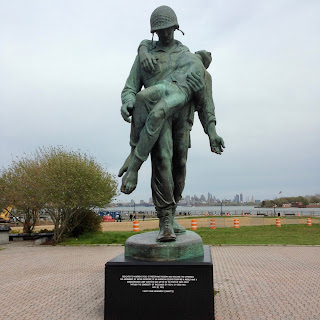This story is told of Albert Einstein traveling on a train out of New York City. As the conductor came through the coach, Dr. Einstein began to look frantically through his coat pocket for his ticket. By the time the conductor arrived at Einstein’s seat, the renowned scientist had pulled out all of his pockets in both his trousers and his coat and was beginning to search through his briefcase. The conductor, immediately recognizing Einstein said, “Don’t worry, Dr. Einstein, I trust you.” The conductor proceeded to collect the tickets from the rest of the passengers and about 30 minutes later, was walking back through the car where Einstein was located. The Princeton professor was blocking the aisle, down on his hands and knees, looking and feeling under the seats and baggage for his ticket. The conductor reiterated, “Dr. Einstein, please don’t worry about finding your ticket. I trust you.” To this Einstein turned his head and from his position on the floor said, “Young man, this is not an issue of trust, it is an issue of direction. I have no idea where I am going!”
I know where I am going today. I’m going to Greece. I know in what direction I must go to get to where I’m going (because it has all been arranged for me and I trust those folk). I have the tickets, the passports and all the necessary papers tucked away safely. I’m ready to go, I know where I’m going, and I have everything together that I’ll need to get there, including trust, “the assured reliance on the character, ability, strength, or truth of someone or something.”
Invariably, whenever I take a trip “across the pond” some friends will say, “Be very careful, it isn’t safe flying these days and it sure is scary and dangerous over there. Aren’t you afraid? You wouldn’t catch me in any of those places!” Many of these well-meaning folk have never been to “these places” and will probably never go! They will never go because they “fear” and fear does not allow for trust. “Trusting” is letting go of fear. “Trusting” makes one extremely vulnerable, but it also brings a joy and a sense of freedom that actually becomes more pleasurable than the experience itself.
 |
| Athens, Greece--1997 |
















